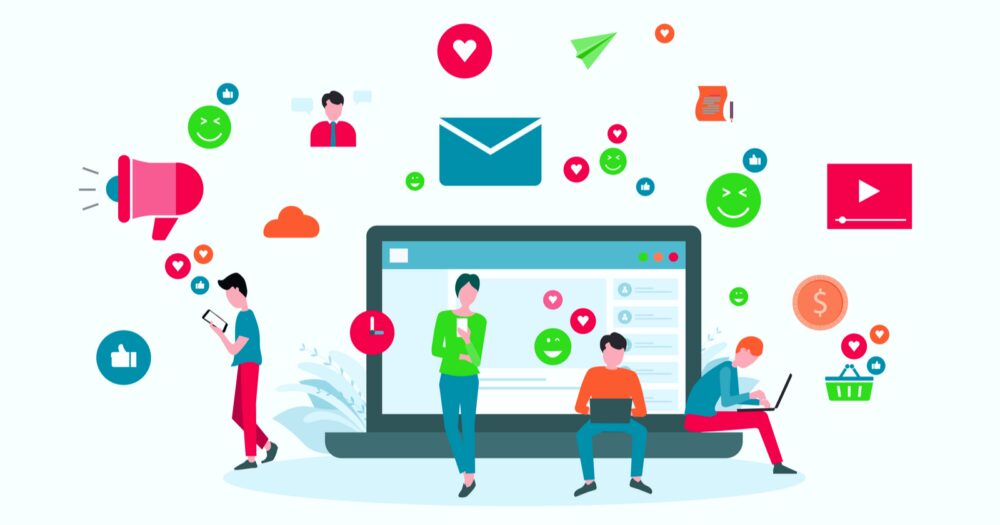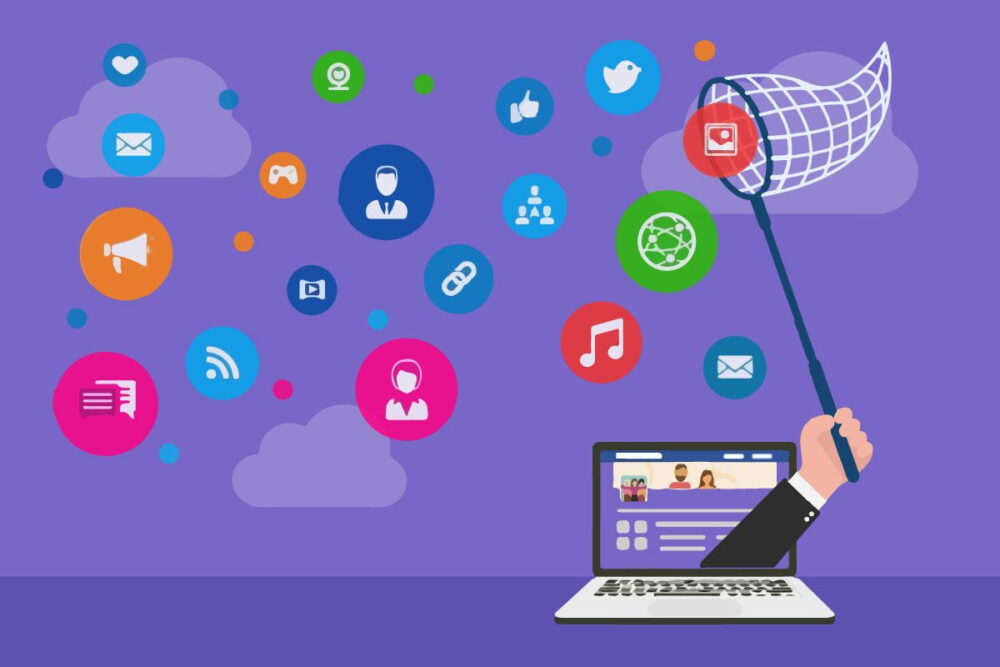Businesses are becoming more reliant on data to drive their decision-making processes. With access to relevant information, businesses can keep up with competitors, monitor the market and even improve interactions with their consumers.
In this article, we’ll take a look at web scraping and, in particular, how scraping social media platforms can benefit your business. We’ll also discuss how important the right tools, like a Telegram scraper from Smartproxy, can help you overcome some of the challenges with scraping social media platforms.
Defining Data Scraping

Source: techvice.org
Data scraping is a process where a specialized tool is used to collect data from various websites automatically. The tool then compiles the information into a single format, usually a spreadsheet or similar file type, where it can be analyzed.
You can build your own web scraper if you know some coding. There are many open-source codes already available, such as Beautiful Soup. The benefit of building your own scraper is that you can add features to cover exactly what you need from the tool. However, you’ll also be in charge of fixing any bugs and keeping the tool, especially the parser, updated.
Alternatively, if you don’t know how to code or don’t want to be bothered by bugs and updates, there are pre-built tools that you can use. These vary from free options that have certain limitations to premium versions that can be scaled for large operations. Now, you can even get specialized scrapers that have been developed to work on certain platforms. This can be a Telegram scraper that’s used to collect data from the social media platform or even SERP scrapers that are geared towards collecting information from search engines.
How Can Scraping Social Media Benefit Businesses

Source: sbmarketingtools.com
There is a wide range of benefits to scraping social media. And depending on your use case, scraping can save you hours of your precious time every month. Let’s take a look at some of them.
Customer Insights
Scraping social media can provide businesses with a better insight into their customers, their preferences, shopping habits, and more. You can use a scraper to collect data from their posts, comments, and other interactions to gain a deeper understanding of your client’s needs. You can then use this information to improve your product offerings and marketing strategies. This, in turn, leads to better customer satisfaction and improved loyalty.
Competitor Analysis
Web scraping can also be used to keep an eye on your competitors. You can scrape data from competitors’ pages to see what they’re offering and how they’re interacting with consumers. You can also scrape any mentions of your competitors as well as comments on their posts to gain a better understanding of how their consumers view them.
By gathering data, you will be able to track the development of your competitors and stay ahead of the competition by introducing new products into the market faster than your rivals.
Reputation Management
One bad review or experience can affect the entire future of your business. Dealing with these complaints or negative reviews quickly is essential as it shows your business cares about service. However, how can you monitor every single possible platform for a potential review – it’s impossible to do it manually. Web scraping social media platforms can help you detect any negative reviews, complaints, or sentiments early so that you can respond before losing too much of your reputation.
Lead Generation
Web scraping enables businesses to collect valuable data on their customers. They can use this information to curate targeted marketing campaigns that attract the right consumers that are already looking for your product or service. By attracting the right clients, you can improve your lead-generation efforts.
What Are the Challenges with Scraping Social Media

Source: blog.apify.com
There are some challenges to be aware of before you start scraping social media. Being mindful of these before getting started will help you choose the right tools for your needs and save time when gathering valuable information from the web.
Technical Limitation
Scraping social media sites is becoming more difficult because of anti-scraping and anti-bot measures put in place by the platforms. However, there are scrapers specifically designed to overcome these challenges – if you know which ones to look for. Alongside a high-quality scraper, you should also invest in a residential proxy. Residential proxies offer IPs linked to real devices, so when paired with your scraper will make it appear like a real user. Choose a social media scraper geared towards the platform you want to collect information from.
Telegram scrapers have been developed specifically to scrape the platform without being detected. This tool can also overcome any security measures needed to perform the activity. Similarly, you also get Instagram, Facebook, TikTok, or more general social media scrapers.
Data Quality
Another challenge to be aware of is the quality of the data you collect. Don’t expect just by extracting data from social media that it’ll be useful immediately. Often you’ll have to go through the data first to clean it up to make it valuable and usable. Some data-gathering tools present the data in a non-parsed file, so you might want to choose a tool that can acquire data from targets and format it in a JSON file, ready to consume.
Final Thoughts

Source: searchenginejournal.com
Social media can be a great platform for businesses to reach new and existing clients. It’s also a source of a lot of useful information about your target audience and competitors. Using a social media scraper makes it easy to collect data from various platforms, helping you improve your digital marketing strategy without breaking the bank.
With scraping, you have access to millions of public data that charges your marketing activities and allows you to get a bigger picture of the industry your business is operating in.


















